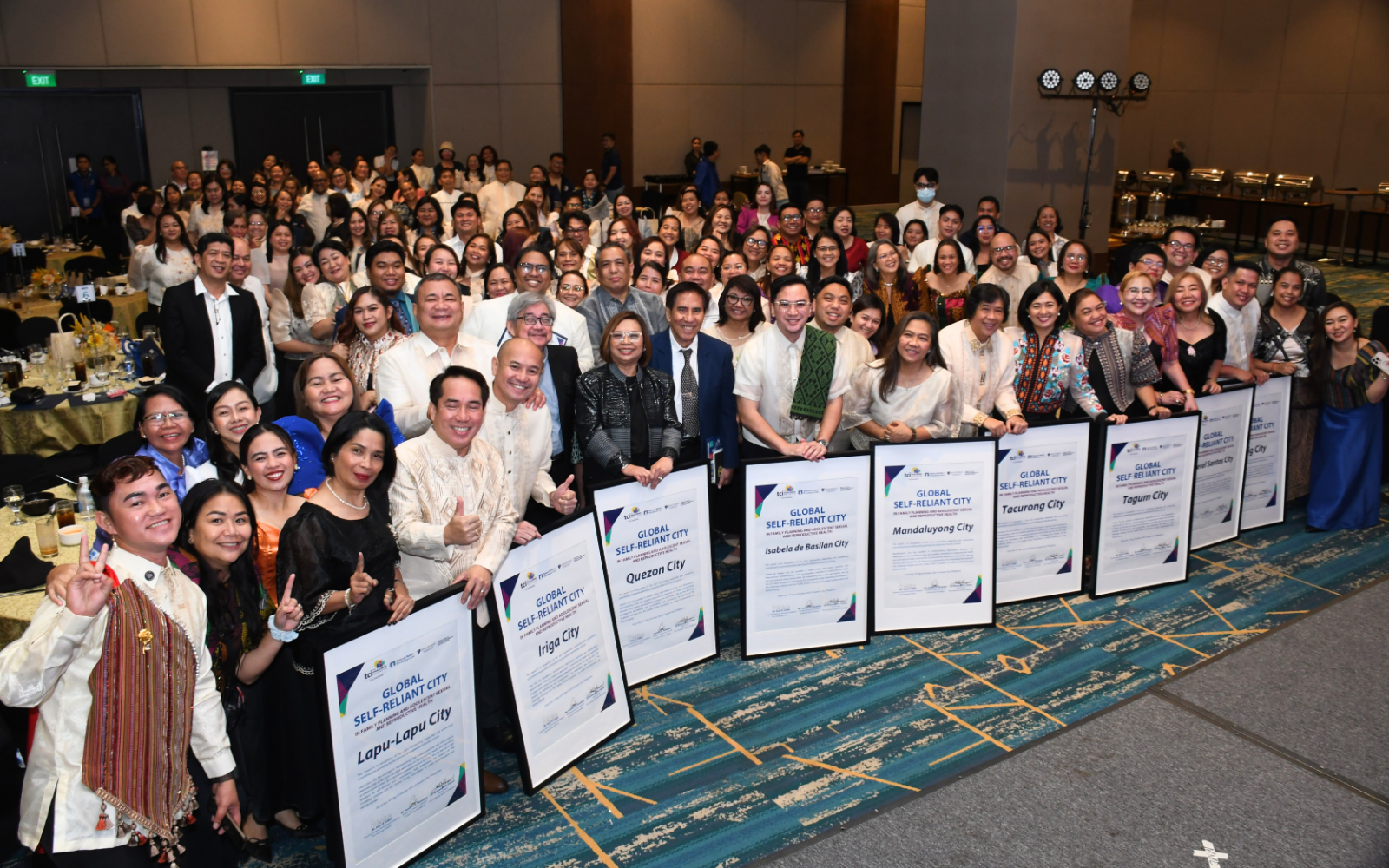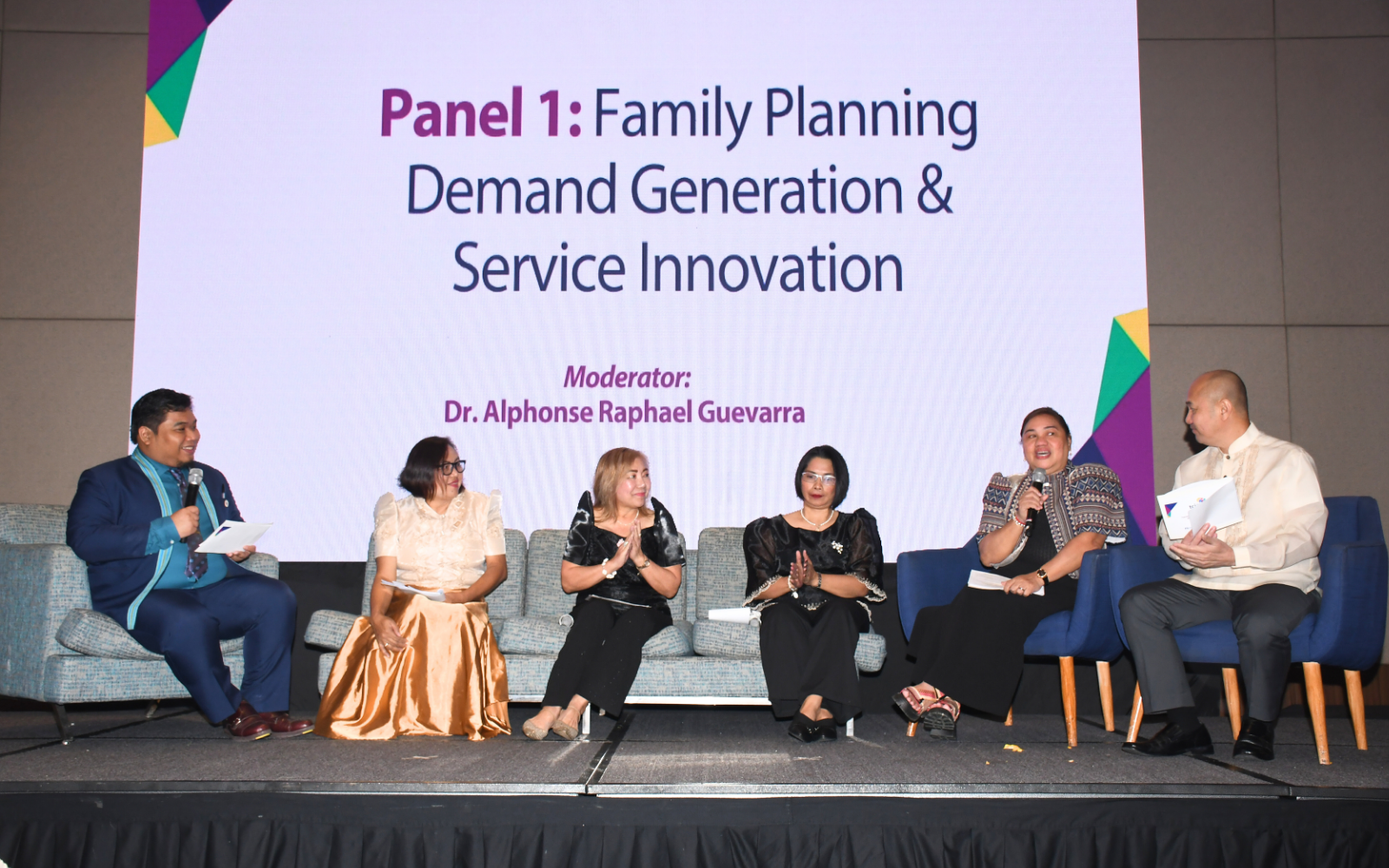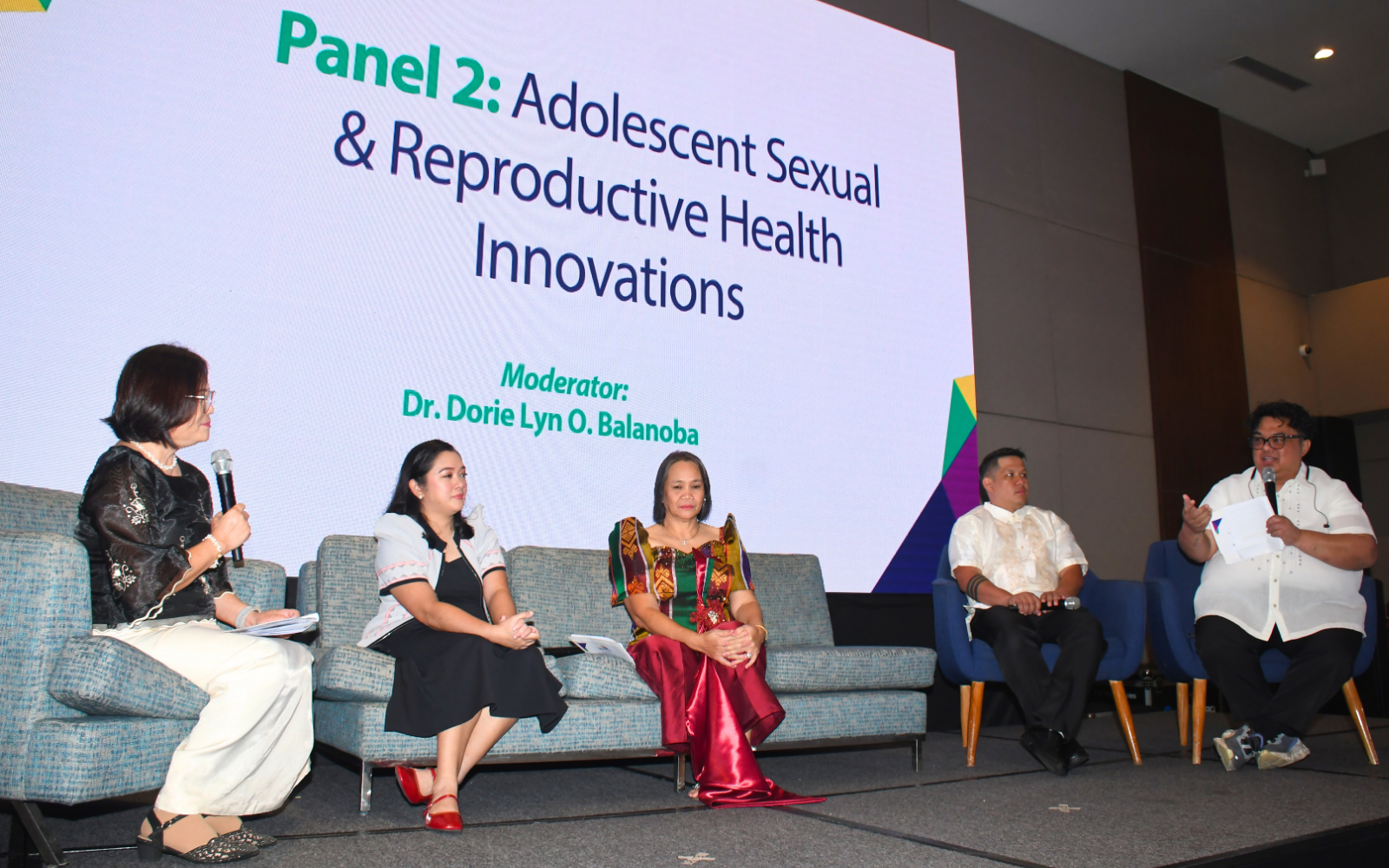Nine Cities Recognized as Global Self-Reliant Cities in Reproductive Health
News | by Krizzia Esperanza

The Zuellig Family Foundation (ZFF) celebrated the graduation of nine cities under The Challenge Initiative (TCI)-Philippines: General Santos, Iriga, Isabela de Basilan, Lapu-Lapu, Pasig, Mandaluyong, Quezon City, Tacurong, and Tagum.
The Batch 3 Colloquium, themed “Sustaining Momentum: Transformative Reproductive Health Impact through Data-Driven Leadership,” took place on October 14, 2025, at the Park Inn by Radisson in Quezon City. The event gathered local government leaders, health officers, and partners from across the country to celebrate how cities strengthened their family planning (FP) and adolescent and youth sexual and reproductive health (AYSRH) programs through evidence-based leadership.
ZFF President and Executive Director Austere Panadero congratulated the cities for their progress. Across the nine cities, data show significant gains: all surpassed the national target for adolescent birth rates or incidence of teenage pregnancy (below 37 births per 1,000 women) and most exceeded the 30% modern contraceptive prevalence rate (mCPR) benchmark. “These are not just numbers,” said Panadero, “Ito ay mga kwento ng pagbabago—of stronger systems, more capable leaders, and communities that now make informed and empowered choices.”
Dr. Anthony Faraon, Chief of Party of TCI-Philippines at ZFF, presented key reproductive health trends, warning that while births among 15–19-year-olds are declining, births among girls below 15 are increasing. He challenged the audience: “Will we act now with the urgency this crisis demands or will we wait until the effects are irreversible?”
Related articles:
- Batch 1: Five Cities Celebrate Milestone in Adolescent Health and Family Planning Efforts
- Batch 2: Eight Cities Share Success in Family Planning and Adolescent Health
Panel 1: Family Planning Demand Generation and Service Innovations

Cities showcased innovative approaches that expanded access and inclusivity in family planning services:
- Tagum City – Mobilized grassroots leaders and youth advocates through Usapang Youth and KATROPA sessions, engaging men and youth as champions of reproductive health.
- General Santos City – Expanded outreach to underserved women through Family Planning Itinerant Teams and long-acting reversible contraceptives (LARCs).
- Lapu-Lapu City – Empowered barangay health workers as frontline FP service providers.
- Iriga City – Promoted culturally sensitive family planning among 21 Indigenous Peoples (IP) tribes.
- Isabela de Basilan – Localized reproductive health materials into 16 languages to reach more communities.
Panel 2: Adolescent Sexual and Reproductive Health (ASRH) Innovations

Cities also implemented programs that placed young people at the center of reproductive health advocacy:
- Mandaluyong City – Organized Healthy Young Ones lectures and the Adolescent Congress to create peer-driven learning spaces.
Quezon City – Institutionalized prevention programs through Ordinance No. SP-3128, s. 2021, establishing the Information and Service Delivery Network for Adolescent Health and Development (ISDN4AHD). - Pasig City – Developed a rights-based referral system to link services across agencies.
- Tacurong City – Integrated adolescent-friendly health services across all barangay centers.
Representatives from the graduating cities shared Leadership Narratives, reflecting on their efforts to sustain reproductive health reforms amid political transitions. They emphasized collaboration, data use, and strong community partnerships as key to their success.

In his closing message, Dr. Manuel M. Dayrit, ZFF Chairman, congratulated the cities for achieving global self-reliance: “You are all part of a global movement called TCI, covering hundreds of cities worldwide. Our local experience has global significance.”
As of September 2025, ZFF and its partners under TCI-Philippines recorded the following results across 24 cities:
- 947 Master Coaches trained nationwide;
- 209,574 additional family planning clients served;
- 21,589 outreach and demand-generation activities conducted;
- 577 health facilities certified as adolescent-friendly; and
- 780 facilities offering post-pregnancy family planning services.
These accomplishments reflect a shared lesson from the colloquium: that locally led, evidence-based, and community-rooted approaches can sustain reproductive health gains and inspire other local governments across the country.